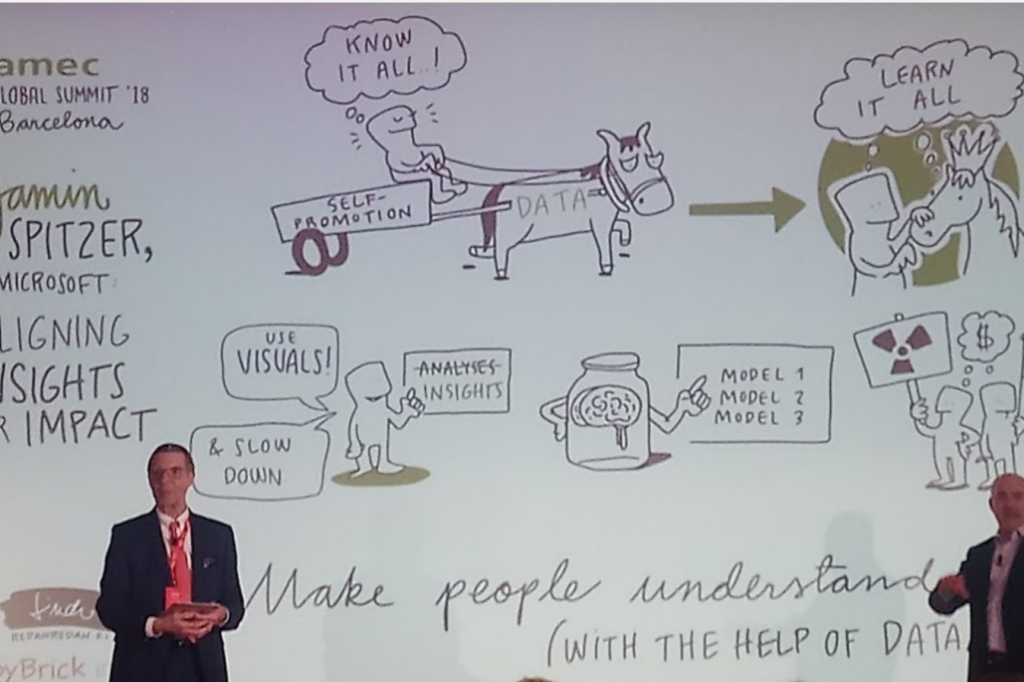AMEC day two: a question of integration

About the author
Richard Bailey Hon FCIPR is editor of PR Academy's PR Place Insights. He teaches and assesses undergraduate, postgraduate and professional students.

On day one of the AMEC Summit 2018 we reported on the shift from media to management. Our day two report tackles the question of integration.
There are various dimensions to integration. This includes the integration of various media channels, as described in the PESO model. It also implies the integration of two previously distinct skill sets: verbal storytelling on the one hand, and research and data analytics on the other. How many of us can claim to have equally well developed skills in both areas?
FleishmanHillard’s Natasha Kennedy said: ‘In the business of public relations you have to be a really good storyteller. In the business of data, you need to be a really good storyteller too.’ In other words, it’s not about the data, it’s about the insight derived from data presented in a compelling narrative.
There’s a tension in the business between those who see themselves as creatives in competition for advertising budgets and those who see themselves as trusted advisers, potentially in competition with management consultants.
Jonny Bentwood of GOLIN had no difficulty in proclaiming his position: ‘I work for a PR company. We will always start with earned [media].’
But for Distinguished Professor Jim Macnamara, the integration of traditional PR outputs with research and analytics leads in a different direction. He was describing a world not easily constrained within the phrase ‘public relations’. He prefers ‘public communication’ and argues that this broadens the role to include public affairs, public relations and customer relations. ‘Integration is happening’, though clients don’t really care what we call the service we provide. ‘We have to think more broadly’.
Many others at the conference also called to an end to silos.
Macnamara described the evolution of behavioural insights (‘nudge theory’) from its origins in behavioural economics (where the problem was the assumption that people will act rationally). He talked up the need for research-driven programmes and evaluation that enables the organisation to adapt to its stakeholders and customers; and described evaluation as ‘intensive listening’.
On this, he reminded the audience that LiSTEN and SILENT are formed of the same letters.
Yet there were some sceptical voices. Integration was challenging according to Jeroen Scholten of Publistat because ‘not everything is a campaign’. It’s challenging because ‘integration is complicated.’ It’s a big leap so we should ‘move from proving to improving.’
‘Clients know PR and comms is important. It doesn’t always have to be evidence-based; it can be values-based.’
The biggest bucket of cold water came from Francis Ingham, wearing his ICCO hat. While the AMEC audience gets the message about discredited metrics such as AVEs, he cited research to show that many practitioners – and even some industry bodies – elsewhere in the world are still beholden to the old ways.
It’s inspiring to spend time at a conference looking to the future, but we should not lose sight that many are still stuck in the past.